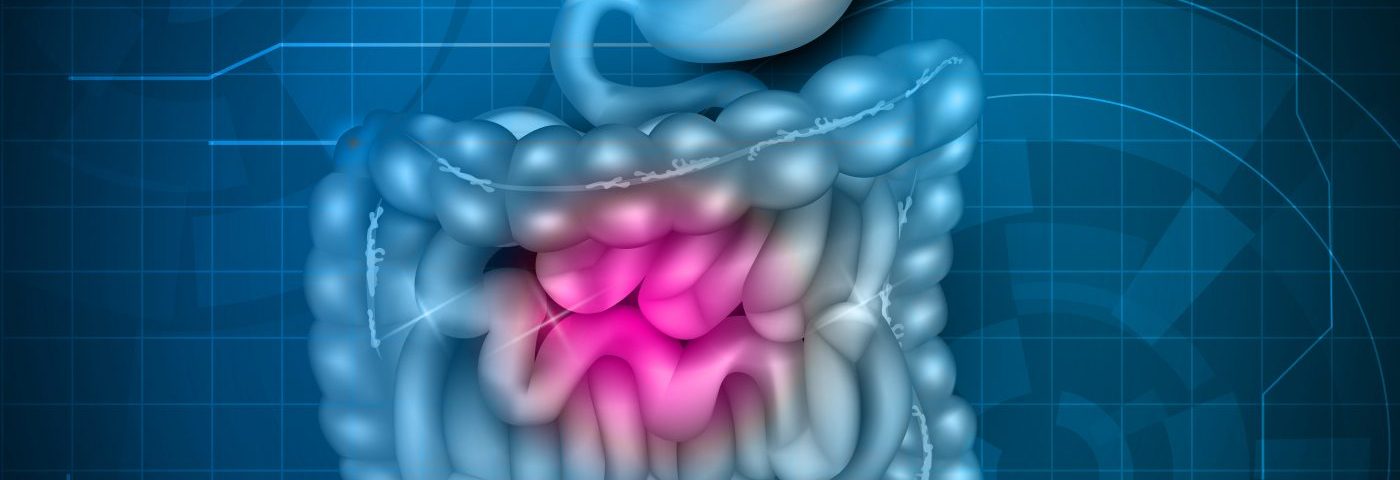In last week’s column, I discussed the autoimmune disease that caused my liver to fail. As I celebrated the second anniversary of my liver transplant, I thought about intestinal transplants and the inflammatory bowel disease community.
The Scientific Registry of Transplant Recipients lists 27 intestine transplant centers in the United States. Based on statistics from the United Network for Organ Sharing, surgeons performed 104 intestine transplants in 2018, with 53 patients receiving transplants this year as of Aug. 31.
One of the primary reasons for an intestine transplant is short bowel syndrome (SBS), which can occur in Crohn’s patients who undergo a bowel resection to remove damaged portions. As most nutrients are absorbed through the small intestine, patients with SBS must modify their diet or take nutritional supplements. In severe cases, patients receive a nutritional formula intravenously via total parenteral nutrition (TPN).
In an interview with the journal Gastroenterology & Hepatology in 2012, gastroenterologist Dr. Suki Subramanian noted that Crohn’s disease is the “second leading indication for intestinal transplantation worldwide.” She said that transplantation for Crohn’s patients should be considered in those with SBS when TPN is failing due to complications. Those who experience recurring catheter-related sepsis should be evaluated. Liver dysfunction, such as cholestasis or cirrhosis, may also indicate TPN failure.
According to the Organ Procurement and Transplantation Network (OPTN), the entire intestine or a segment can be transplanted. The operation is often performed in conjunction with a liver transplant. While most organ donations come from deceased donors, a living donation of an intestinal segment is possible.
Becoming an intestinal transplant candidate and finding a donor is a complex and sometimes lengthy process. When the patient is first referred to a transplant center for evaluation, a transplant nurse coordinator acts as the main point of contact to educate the patient about the transplant process.
Doctors, nurses, surgeons, and technicians perform medical tests to determine the patient’s overall health and blood and tissue type. As Dr. Subramanian mentions, active systemic infection or cancer disqualifies the patient for candidacy. However, from my personal experience as a transplant recipient, the patient can be reevaluated after successful treatment.
Along with a physical evaluation, a psychologist or psychiatrist, social worker, and financial coordinator assess the patient’s mental, emotional, and financial stability. The psychologist or psychiatrist helps the patient cope with the depression or anxiety he or she may experience pre- and post-operation. The financial coordinator assists with communicating with the insurance company and applying for financial assistance, if necessary. The social worker ensures that the patient has an adequate support system.
After performing all evaluations, a committee consisting of healthcare providers at the transplant center reviews the patient’s case. If the center accepts the patient for surgery, it sends the case to the patient’s health insurance company for approval. If the center denies the patient, the patient can attend another transplant center for evaluation, and the process starts over. Once the insurance company approves the transplant, the patient is listed on the national OPTN waiting list.
Finding a donor match can take hours, months, or even years. Physiological factors, like blood type and body size, are key factors for intestine transplants. When matching the donor intestine to a waiting list candidate, the U.S. Government Information on Organ Donation and Transplantation website stresses that “the ABO blood group must be identical because of the higher risk of graft-versus-host-disease (GVHD), a violent immune reaction by the lymphocytes within the donor organ against the recipient’s body that can lead to death.”
Additionally, it warns that the patient’s abdominal cavity can shrink, so the donor must be smaller in size. Intestinal transplant patients are also at a higher risk for infection from cytomegalovirus and Epstein-Barr virus. Therefore, patients who haven’t previously been exposed to the viruses are not matched with donors who test positive.
When these physical criteria are met, the severity of the patient’s medical condition is factored in. The Medical Advisory Secretariat of Ontario recommends the time between organ procurement and transplantation be less than 10 hours to prevent organ preservation injury. So, the distance between the donor’s and patient’s hospitals and the patient’s availability are considered.
A study published in the Turkish Journal of Surgery found that a high percentage of intestinal transplant recipients experience acute or chronic rejection. While 50 to 75 percent of patients experienced acute rejection within 90 days of surgery, chronic rejection occurs in 15 percent of recipients. OPTN reports the survival rate of patients with SBS transplanted between 2008 and 2015 as 80.6 percent after the first year and 53.6 percent after five years.
At the time of this writing, 228 patients are waiting for an intestine transplant. Two of those patients are officially listed with a diagnosis of SBS due to Crohn’s.
With continued research, survival rates will improve and transplant alternatives developed. And, hopefully, a cure for Crohn’s will eliminate the need for a transplant.
***
Note: IBD News Today is strictly a news and information website about the disease. It does not provide medical advice, diagnosis, or treatment. This content is not intended to be a substitute for professional medical advice, diagnosis, or treatment. Always seek the advice of your physician or other qualified health providers with any questions you may have regarding a medical condition. Never disregard professional medical advice or delay in seeking it because of something you have read on this website. The opinions expressed in this column are not those of IBD News Today, or its parent company, BioNews Services, and are intended to spark discussion about issues pertaining to IBD.

